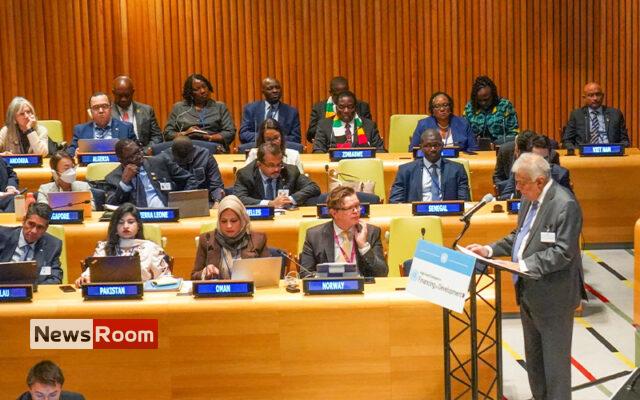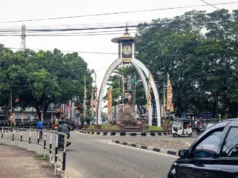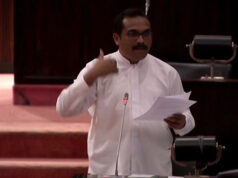President Ranil Wickremesinghe, speaking at the Climate Ambition Summit on the sidelines of the UN General Assembly on Wednesday (20), affirmed Sri Lanka’s commitment to the Secretary General’s accelerated climate agenda. He highlighted the importance of tangible climate actions and commended the delegates for their valuable suggestions.
President Wickremesinghe drew attention to the significant economic consequences of climate-related issues, with experts predicting a 1.5% GDP loss for Sri Lanka by 2050. In response, Sri Lanka has adopted a dual approach to climate ambition. At COP 27, the President launched the Climate Prosperity Plan, a strategy for green growth centered on renewable energy generation, leveraging the nation’s natural advantages in wind and solar power. This initiative aligns with Sri Lanka’s economic restructuring following the 2022 financial crisis, as the country aims to transition towards a green economy.
The second facet of Sri Lanka’s climate ambition involves supporting the establishment of a climate justice forum. This forum aims to foster international collaboration to address various climate challenges, including loss and damage adaptation and mitigation.
In addition to these efforts, Sri Lanka is proposing two critical measures on the global stage. First, the President suggested the creation of an international climate change university, designed as a global platform for research and development focused on climate mitigation actions.
Second, recognizing the need for responsible resource management, Sri Lanka is concentrating on areas where maximum impact can be achieved. The President introduced the Tropical Belt Climate Ambition Project, targeting the highly bio diverse tropical belt region.
Vulnerable communities in this area are disproportionately affected by climate change. “The tropical belt is the most tropically diverse region on earth. Typically, biodiversity increases as the latitude decreases. The biodiversity increases as we get closer to the equator. Vulnerable communities in the tropical belt are the worst impacted by climate change,” he added.
Investments in renewable energy, nature-based solutions and pollution control within the tropical belt have the potential to yield transformative results, benefiting not only the region but also temperate areas worldwide. Furthermore, the project aligns with the goals of climate change mitigation and adaptation, offering an opportunity for debt relief to low-income countries within the belt. “Not only in the tropical belt, but will also impact on the temperate areas outside. The nature based solutions could contribute substantially to climate change mitigation and adaptation. There are also a number of low-income countries within the belt who will be able to benefit from the debt relief that is being proposed.”
These initiatives, the Tropical Belt Climate Ambition Plan and the proposed debt relief for low-income economies within the belt, are poised to make a substantial contribution to advancing the Secretary General’s accelerated climate agenda. President Ranil Wickremesinghe’s statement underscores Sri Lanka’s dedication to addressing the pressing challenges of climate change on both the national and global fronts.
(PMD)








